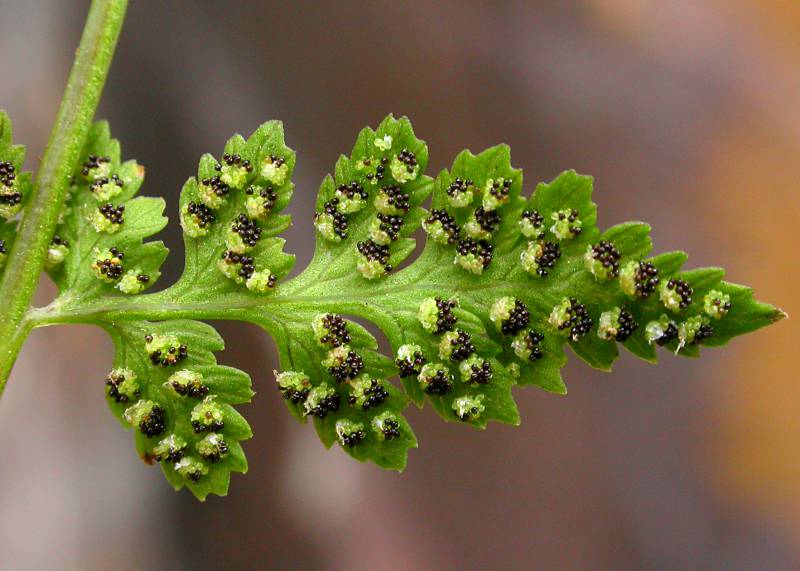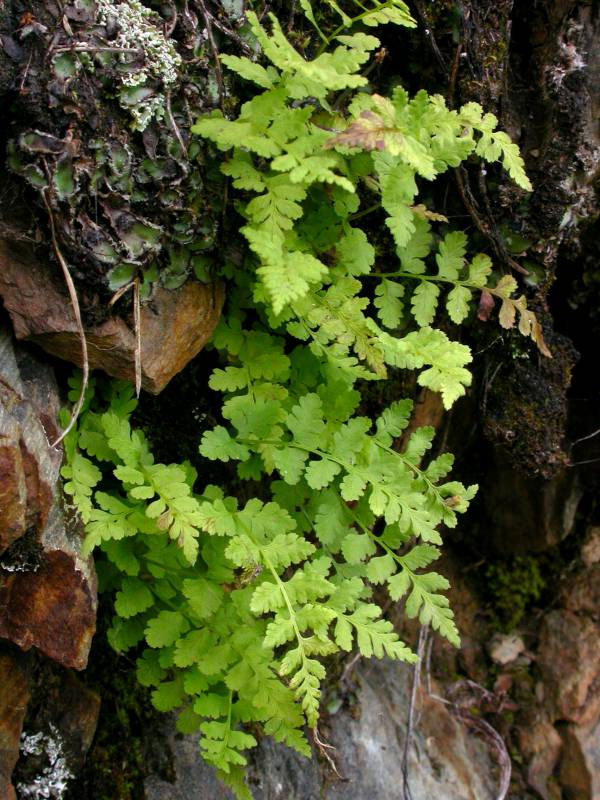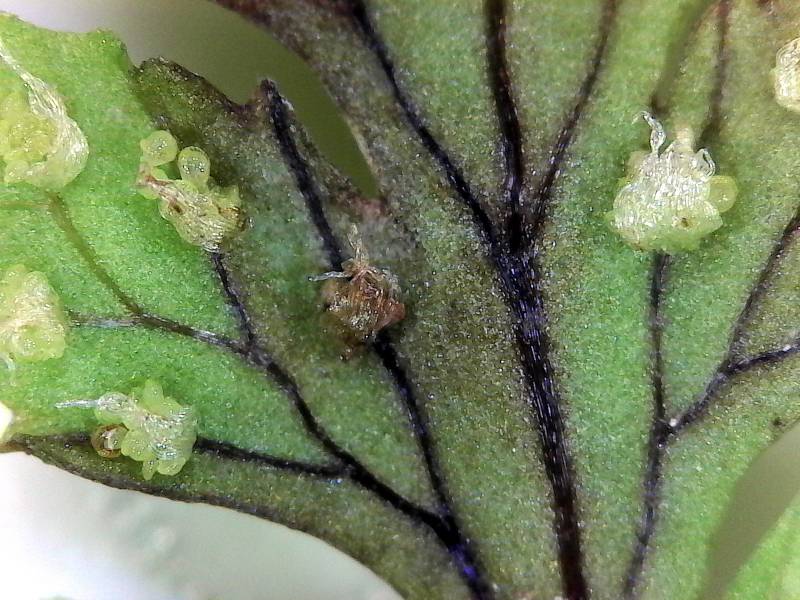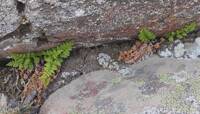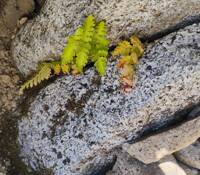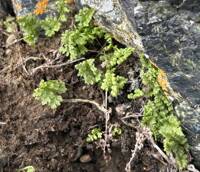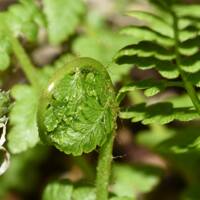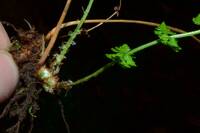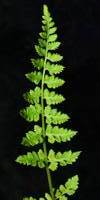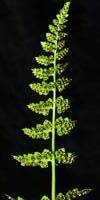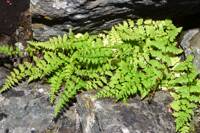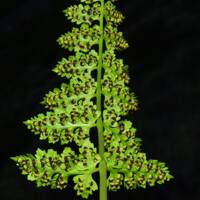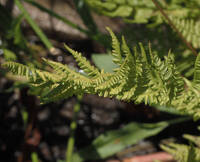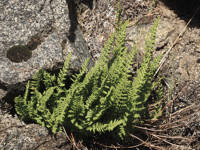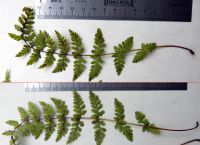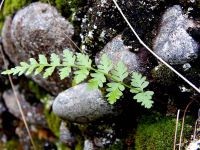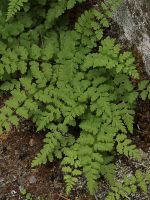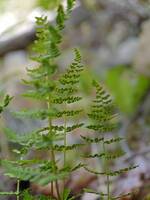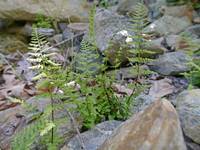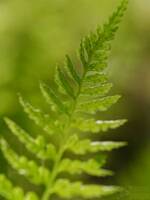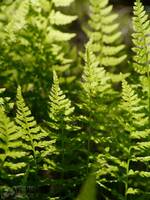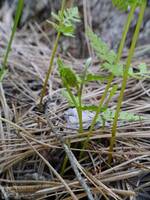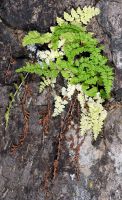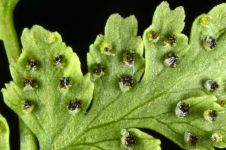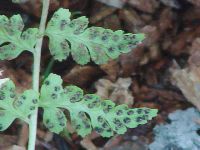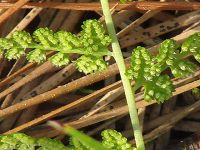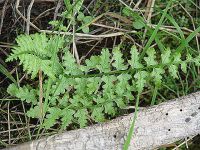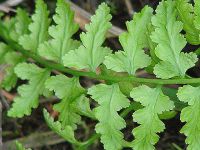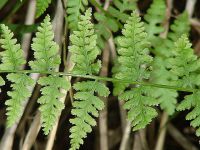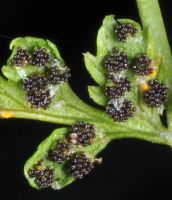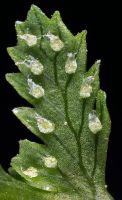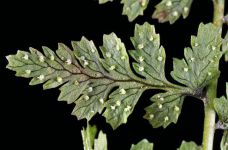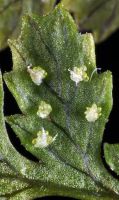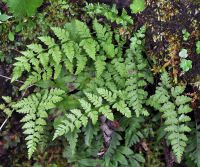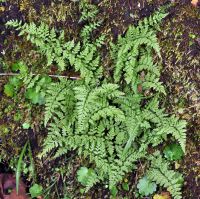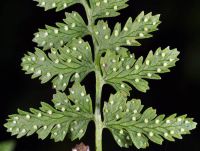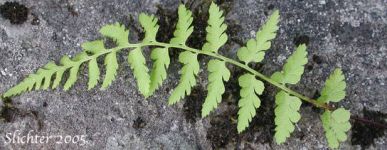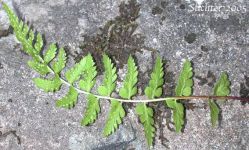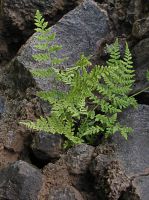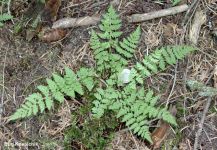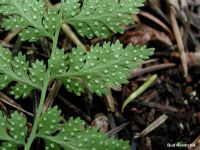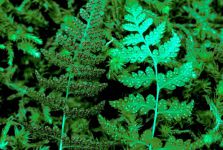Distribution: Occurring on both sides of the Cascades crest in Washington; Alaska to California, east across the northern half of North America to the Atlantic Coast; circumboreal.
Habitat: Moist to moderately dry, often rocky places, lowlands to above timberline
Spores: April-September
Origin: Native
Growth Duration: Perennial
Conservation Status: Not of concern
Perennial with creeping stems and short internodes, not hairy, beset with old petiole bases; scales tan to light brown, lanceolate.
Leaves monomorphic, to 40 cm, clustered at apex of stem; petiole dark at base, becoming mostly green to pale yellow distally, shorter than or almost equal to blade, base scarcely scaley; blade lanceolate to narrowly elliptic, 1- or rarely 2-pinnate-pinnafitid, widest at or just below mid-stem, apex acute; gland-tipped hairs absent from rachis, costae, and pinnae axils; pinnae typically perpendicular to rachis, not curving, margins serrate to sharply toothed, pinnae nearest base pinnafitid to pinnate-pinnafitid, more or less even, basiscopic pinnules not enlarged, basal basiscopic pinnules sessile with a base truncate to obtuse, distal pinnae deltate to ovate; veins directed mostly into teeth.
Indusia ovate to lanceolate, gland-tipped hairs absent; spores spiny or verrucose, usually 39-60 micrometers.
Publication: Neues J. Bot. 1(2): 26, plate 2, fig. 9. 1806.
Polypodium fragile L.
PNW Herbaria: Specimen records of Cystopteris fragilis in the Consortium of Pacific Northwest Herbaria database
WA Flora Checklist: Cystopteris fragilis checklist entry
OregonFlora: Cystopteris fragilis information
E-Flora BC: Cystopteris fragilis atlas page
CalPhotos: Cystopteris fragilis photos

